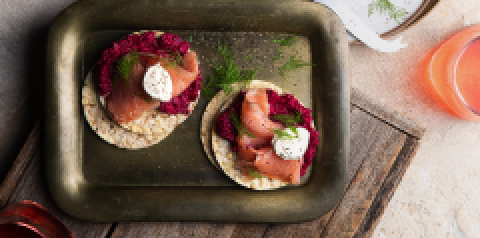Nutrition Tips to Reduce Your Hay Fever Symptoms

Do you dread spring because you know it is a time where your hay fever flares up? You are not alone if you answered yes as it is estimated that around 18% of people in New Zealand and Australia suffer from hay fever symptoms such as unbearably itchy eyes, a runny nose, and watery eyes.
You are likely to be aware that medications can help reduce symptoms such as antihistamines. What you may not know is that your diet can play a key role in potentially reducing your hay fever symptoms and make spring a much more enjoyable season.
Before getting into specific foods which can act as natural antihistamines it is important to mention the role of your gut. As this is the site of most of the production of antihistamines it is important to eat a diet which promotes optimal gut health. Your gut is also where 70% of your immune system is found.
The major fuel of the health promoting microbes as well as the fiber needed to keep your gut working at its best comes from plant-based foods. A variety and enough plant-based foods each day is a key component of gut health. A lifestyle strategy to support optimal gut health is by including thirty different plant-based foods a week. This includes plant foods like fruits, vegetables, nuts, seeds, legumes, beans, and wholegrains, or wholegrain containing foods like Corn Thins slices.
Specific foods which may help to reduce your symptoms of hay fever due to their anti-inflammatory and antihistamine effects include:
- Seafood
Seafood, and especially fatty fish are a great source of omega-3 polyunsaturated fat. This essential fat has known anti-inflammatory effects and may help to reduce your symptoms of hay fever. Good sources of fatty fish include sardines, herring, mackerel, salmon, and anchovies.
- Sip On a Cup of Green Tea
Green tea has been enjoyed for centuries as a drink to promote overall wellbeing and health. To add to the many health benefits linked to green tea it may also help to reduce your symptoms of hay fever. A compound found in green tea called methylated epigallocatechin gallate (EGCG) may help to reduce the uncomfortable symptoms associated with hay fever.
Methylated epigallocatechin gallate is a biologically active antioxidant. Methylated epigallocatechin gallate is predicted to work by blocking a key cell receptor involved in producing an allergic response. It does this by inhibiting the production of histamine as well as suppressing a factor called immunoglobulin E (IgE) which promotes the initiation and the ongoing symptoms of hay fever.
- Vitamin C Rich Foods
Many fruits and vegetables are a great source of vitamin C. This water-soluble vitamin has antioxidant properties which helps to optimize your immune system function and is also a naturally occurring antihistamine. Fruits and vegetables rich in vitamin C include oranges, berries, leafy greens like kale, bok choy, and broccoli, kiwi fruit, and mango.
- An Apple A Day Keeps the Hay Fever Away
Apples are another good source of vitamin C and contain another antihistamine compound called quercetin. The proposed mechanisms which make quercetin a natural antihistamine is that this compound helps to reduce the inflammatory response of histamine, dampens the inflammatory factors that promote the pro-inflammatory response of histamine, and helps to reduce the release of histamine from your body.
- Onions Are Not Only Good for Keeping Vampires Away
Onions are not only a great staple to include in many different dishes such as in a pasta sauce and on the tomato base of a pizza but is another source of vitamin C and quercetin.
Take home message: If you are one of the many that dread spring because of hay fever these nutrition tips may be the key to helping reduce your hay fever symptoms. The good news about including the foods mentioned above is that they also contain a matrix of additional health benefits to support your health and wellbeing.
References:
- Pollen Allergy. The Australasian Society of Clinical Immunology and Allergy. https://www.allergy.org.au/patients/allergic-rhinitis-hay-fever-and-sinusitis/pollen-allergy
- Mlcek J, Jurikova T, Skrovankova S, Sochor J. Quercetin and Its Anti-Allergic Immune Response. Molecules. 2016 May 12;21(5):623. doi: 10.3390/molecules21050623. PMID: 27187333; PMCID: PMC6273625.
- Hirofumi Tachibana, Ph.D. Green tea may fight allergies. Journal of Agricultural and Food Chemistry. https://www.eurekalert.org/news-releases/821447